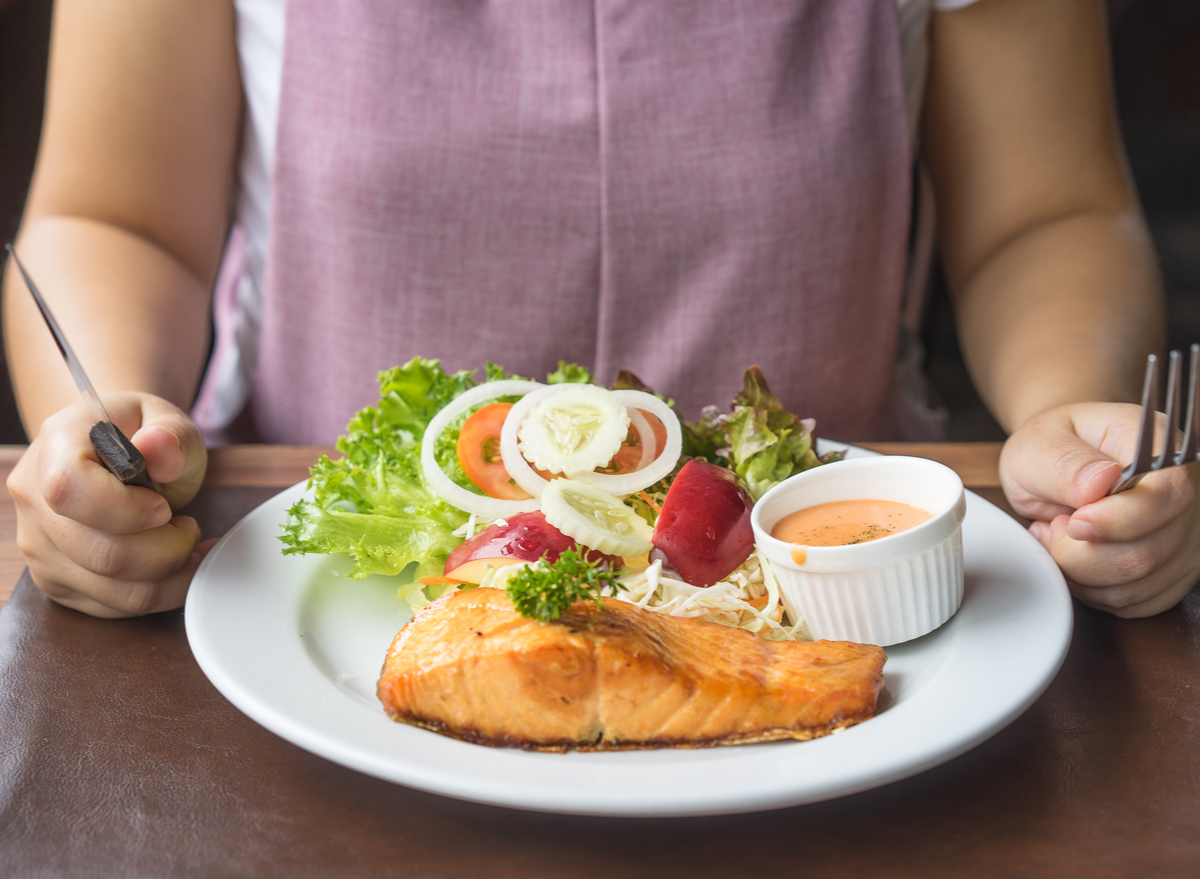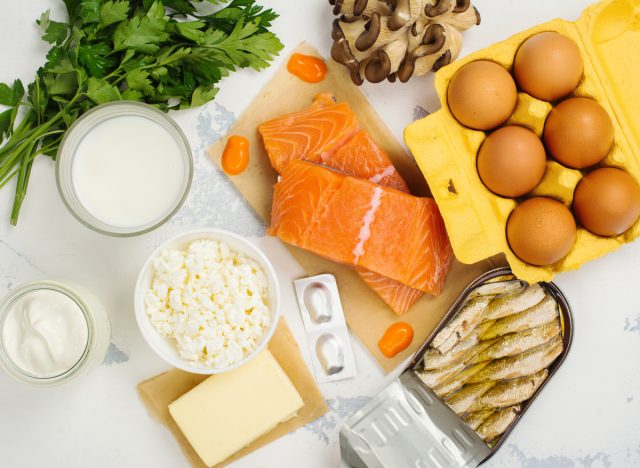The #1 Worst Eating Habit Speeding Up Bone Loss, Says Dietitian

Life may start shaping up in your late twenties and early thirties, but unfortunately, this is when bone growth comes to a halt. Even though your bone mass may have reached its peak by age 30, there’s still plenty you can do to prevent bone loss—or speed it up if you’re not careful.
Most people aren’t aware of low bone mass until they end up with a broken bone. While many drinking and eating habits can speed up bone loss, there’s one sneaky habit that can be causing damage without you even knowing: skimping on your calcium and vitamin D.
Some ways you can be doing this is by replacing all dairy products, which are good sources of both calcium and vitamin D, with plant-based alternatives that are not fortified with these two nutrients. You may also be making red meat the center of your plate regularly rather than incorporating vitamin D-rich fish, which experts recommend you to eat 2-3 servings per week.
However, if you’re too focused on what you shouldn’t be eating for optimal bone health, you’ll miss out on the foods you should be eating more of. Calcium and vitamin D are two nutrients that work together for strong, healthy bones.

Almost all of the calcium in your body is found in your bones. Sixty-six percent of bone is made up of a mineral known as calcium hydroxyapatite. Your bones will pay the price if you’re not eating enough calcium.
So, how much do you need? The Recommended Dietary Allowance (RDA) for calcium for adults is 1,000 milligrams each day. This amount increases to 1,200 milligrams daily for women after age 51. Up to 40% of the US population doesn’t meet the recommended requirements for calcium with diet alone.
Include foods high in calcium like milk, tofu, sardines, yogurt, or foods fortified with calcium in your diet each day. If you can’t meet your needs with food alone, ask your doctor about taking a supplement to support your bone health.
But, it’s not just calcium you need to be worried about. Without vitamin D, your body can’t use the calcium you’re eating to strengthen your bones. Vitamin D is unique since your body can make it through sun exposure, but because of time indoors, living north of the equator, and the decreased ability to produce vitamin D as we age, food and supplements can help you get enough.
Naturally, vitamin D is only found in fatty fish and wild-grown or UV-treated mushrooms. Fortified foods and supplements can help you reach the recommended 15 micrograms of vitamin D daily.
Takeaway
Skipping foods high in calcium and vitamin D can speed up bone loss, increasing your risk for osteoporosis and fractures as you age. If you need ideas on incorporating these foods into your daily diet, try some of these top foods for healthy bones.